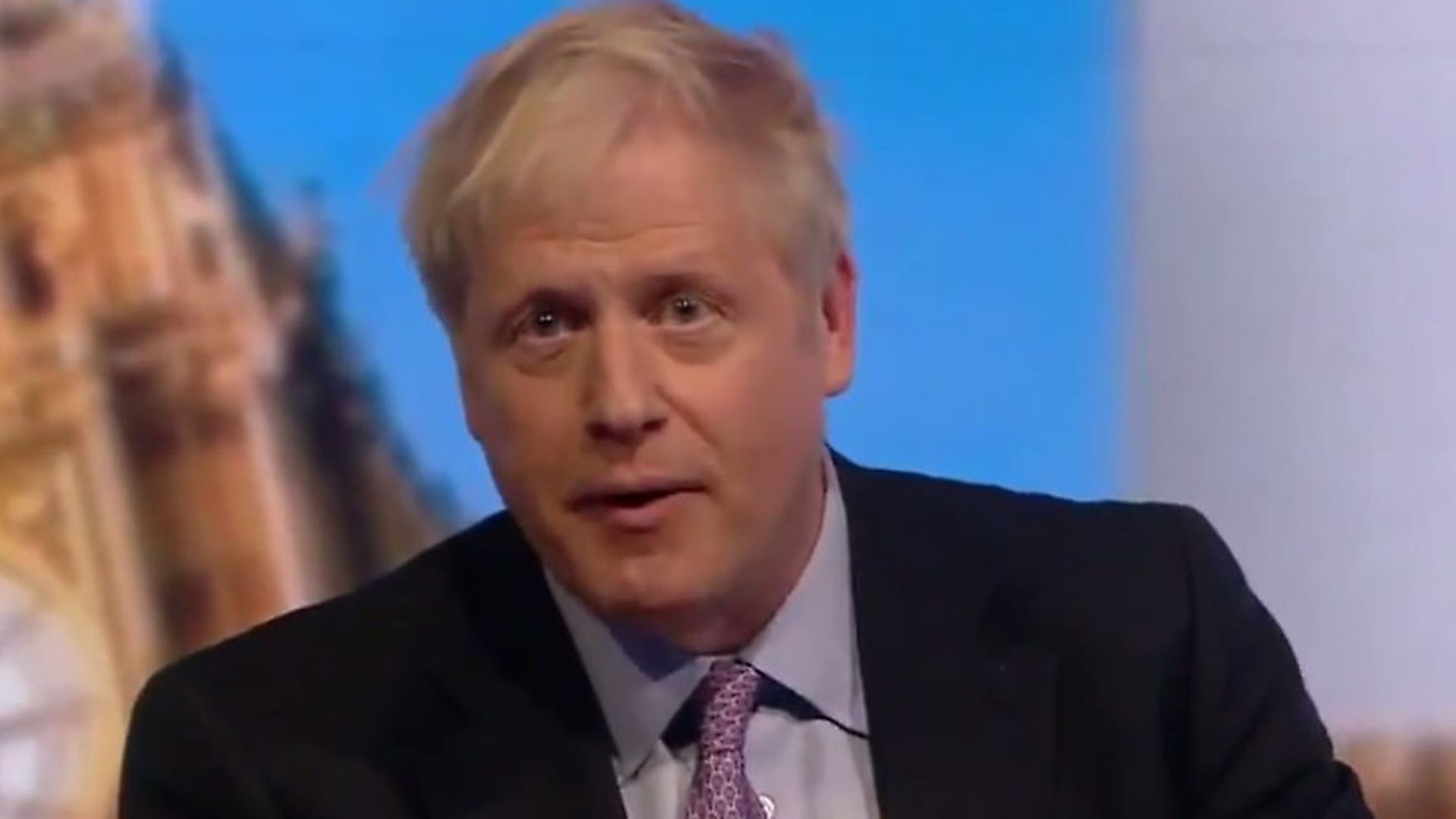
Boris Johnson was made deeply uncomfortable during the BBC Tory leadership debate, when Johnson was asked about the consequences of his words by an imam concerned about islamophobia.
Boris Johnson says he is "sorry for offence caused" by his article about Muslim women who wear veils, but says "people have taken my words... and escalated them"
— BBC Politics (@BBCPolitics) June 18, 2019
Live updates: https://t.co/sYMtjZRym7 #BBCOurNextPM pic.twitter.com/mXuxVwfSlq
The BBC debate invited the five remaining candidates to respond to question put to them directly by ordinary people around the UK, and covered issues such as a no-deal Brexit, taxation, and the environment.
The imam, who introduced himself as Abdullah, asked: “I see first-hand the everyday impact of islamophic rhetoric on my community. Do the candidates agree that words have consequences?”
Johnson had written in a 2018 Telegraph article about Muslim woman in burqas looking like “bank robbers” and “letterboxes”, and the question was likely aimed primarily at him.
But having addressed all previous questioners by name, he had to be reminded of Abdullah’s name on his second try and appeared to use the fact that his grandfather had been Muslim as a defence.
This. @BackBoris what are you saying? Boris ridiculing his own ancestors and not making an effort to remember names. You don't get credit by associating with Muslims when it suits you @BorisJohnson #BBCOurNextPM https://t.co/k1vu9Mtmqp
— Amal (@amal1612) June 18, 2019
He apologised for the offence his words have caused “insofar as … people have taken those words out of my articles and escalated them” in his years as a journalist.
Asked the same question at the launch of his leadership bid, he had already drawn comparisons to Donald Trump when he said he was “delighted” that his supporters had begun to boo, and doubled down on his position as someone who would continue to speak frankly.
READ: Boris Johnson accused of ‘Trumpian tactics’ as he kicks off leadership bidDuring the BBC debate, he said: “But I would just say this to … our friend from Bristol, that when my Muslim great-grandfather came to this country in fear of his life in 1912, he did so because he knew it was a place that was a beacon of generosity and openness and generosity and a willingness to welcome people from around the world.
Host Emily Maitlis asked: “What would he think then of you using those words then?”
Boris Johnson just claimed his words about Nazanin Zaghari-Ratcliffe had no effect on her prison sentence.
— Alex Tiffin (@RespectIsVital) June 18, 2019
What's the point if nobody calls out blatant lies.#BBCOurNextPM #BBCDebate
Johnson ignored this, saying that as prime minister he will ensure the UK acts as he described it did towards his grandfather.
Searching around for the Muslim man’s name again – which Maitlis helpfully supplied – he then said that his Muslim great-grandfather would have been “astonished” to have found that his great-grandson had become foreign secretary.
Maitlis put Abdullah’s original question to Johnson again: “Do you accept that words have consequences?”
She then raised the issue of British-Iranian national Nazanin Zaghari-Ratcliffe who is serving a five-year prison sentence on accusation of spying while on holiday in Iran.
Johnson, in his position as foreign secretary, had suggested that Zaghari-Ratcliffe was teaching at the time, which Iranian officials cited in their case against her.
Johnson refused to allow anyone to “point the finger” at him or anyone in the UK, saying: “I think it didn’t make any difference.”
“All you are during is exculpating those who are truly responsible, which is the Iranian revolutionary guard.”
The next day, Abdullah’s social media comments were put under scrutiny and screenshots emerged of two antisemitic tweets from an account under the name of @AbdullahPatel94 – which now appears to have been deactivated.
Nicky Campbell, who hosted Abdullah on BBC’s Five Live breakfast show the next morning, apologised for not checking his social media. “His social media comments have been extremely disturbing. We should have checked. We didn’t. I’m sorry.”
The clear winner of that exchange, however, is likely to be Sajid Javid, who put all the candidates on the spot about securing an independent investigation into islamophobia in the Conservative Party, to which all appeared to agree.
Warning: Illegal string offset 'link_id' in /mnt/storage/stage/www/wp-includes/bookmark.php on line 357
Notice: Trying to get property 'link_id' of non-object in /mnt/storage/stage/www/wp-includes/bookmark.php on line 37






